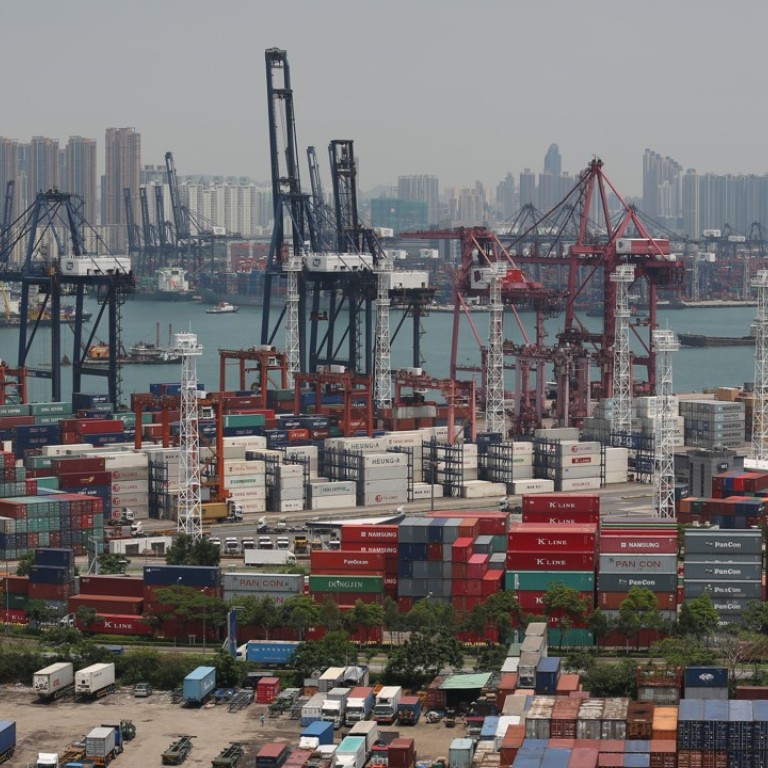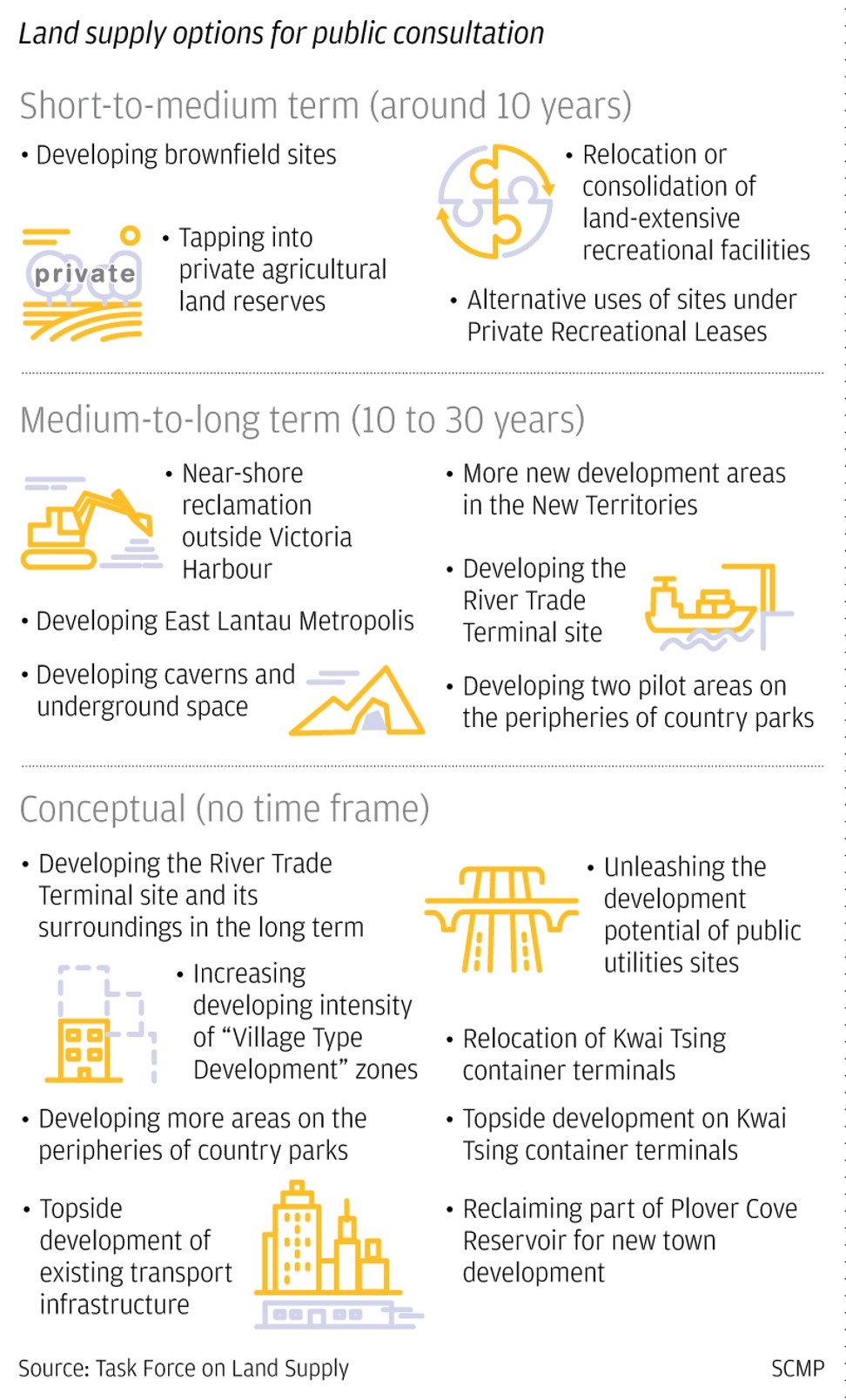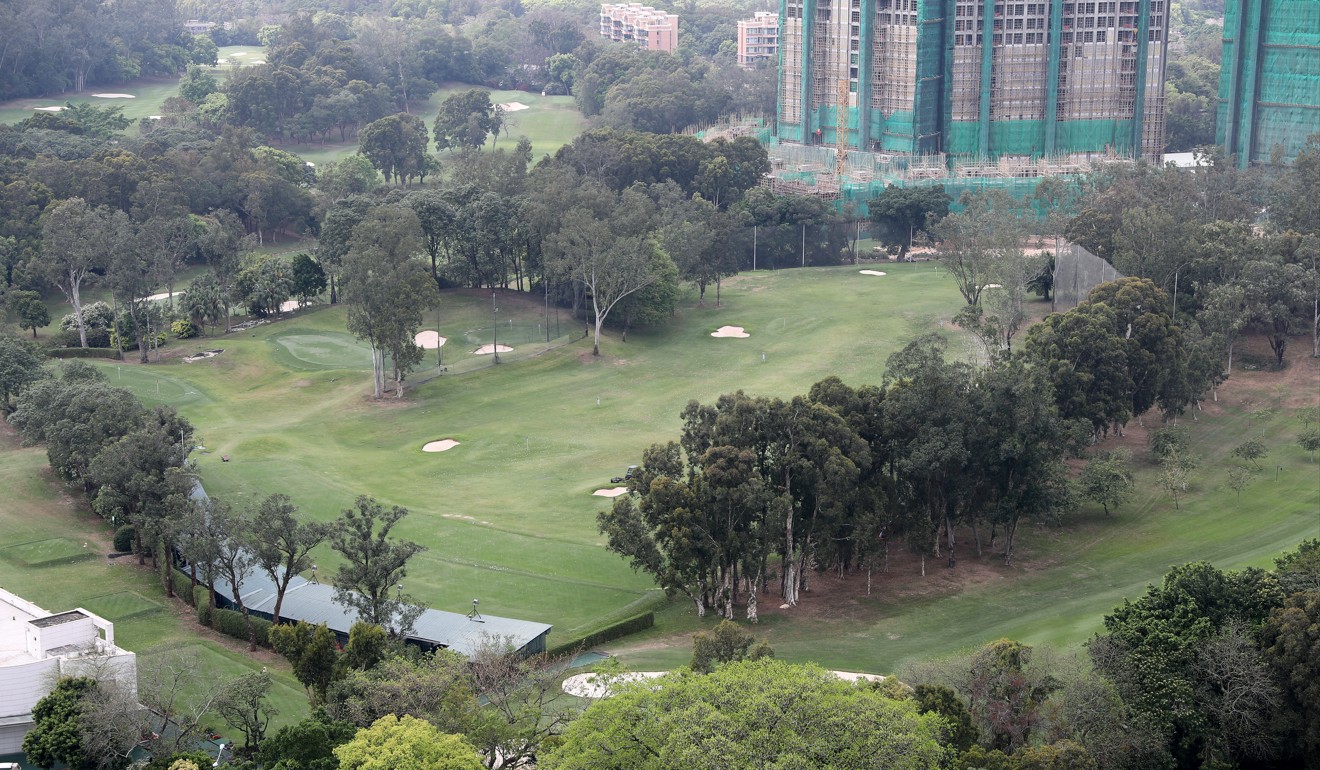
Proposed solutions to Hong Kong’s housing crisis ‘conceptual’ and controversial
Document set for public consultation seen by the Post details a list of options that raise doubts over a decision being reached quickly
Doubts are already being cast on whether a public consultation launching on Thursday to find a solution to Hong Kong’s land crisis will reach a consensus, with almost half the 18 options described as “conceptual” and others seen as too controversial, according to a document seen by the Post.
Chief Executive Carrie Lam Cheng Yuet-ngor has high hopes for the five-month exercise she calls the “big debate”, as the city struggles to build more flats and prices keep hitting record levels.
Expectations over Lam’s housing policy raised even further
During the consultation, the public will be asked to gauge what the best ways are to make up for the city’s projected shortfall of 1,200 hectares (3,000 acres) of land for housing and economic development for the next 30 years.
Of the 1,200 hectares, 800 have to be accounted for by 2026, the document said.
The 76-page consultation paper, titled Land for Hong Kong: Our Home, Our Say!, categorised eight options, including developing on top of Kwai Tsing Container Terminal and reclaiming part of Plover Cove Reservoir, as conceptual ones because it remained unclear how feasible they were, while the remaining options would be able to produce land within 10 to 30 years.
Subsidised flats could be priced according to ‘what you can afford’
The four that could yield the quickest results were: using the Fanling golf course, agricultural land reserves held by private developers, brownfield sites, and relocating or consolidating land-extensive recreational facilities.

The container terminal proposal has received intense lobbying from former senior officials and veteran building professionals including former development secretary Mak Chai-kwong and veteran architect Rocco Yim Sen-kee.
Developers’ hoard of empty flats aggravates Hong Kong’s housing crisis
The plan, initiated by former president of the Institution of Engineers Joseph Chow Ming-kuen, would involve building homes for “tens of thousands” of residents on top of a 50 to 60-metre high concrete deck above the terminal.
But the document cited a slew of technical challenges and uncertainties over development rights. “This proposal can only be taken forward on the condition that terminal operations would not be affected,” the paper stated.
Five key things you need to know about Hong Kong’s land crisis
Hong Kong’s port is the fifth biggest in the world and runs round the clock throughout the year, with Kwai Tsing Container Terminal handling up to 80 per cent of the city’s total container throughput – about 20 million units annually.
Other concerns, including the development rights of the five existing private operators, as well as the impact on the port’s competitiveness and environment, would need to be “carefully considered”.
Plastic bottle homes? Six ways to solve Hong Kong housing problem
A number of high profile figures have showed strong support for the proposal, despite its challenges and uncertainties.

MTR Corporation chairman Frederick Ma Si-hang said in an interview with the Post that a rail extension could be considered to link up the container terminals and Nam Cheong or Mei Foo, if the government gives the green light for the proposal.
Ma’s endorsement has sparked accusations of a conflict of interest.
MTR proposes ‘Hong Kong Town’ on mainland to ease housing crisis
Ma serves as a non-executive director for Husky Energy, a Canada-based energy giant controlled by tycoon Li Ka-shing’s family, who also operates four of the nine terminals.
Among the quicker options listed in the consultation paper, developing the 170-hectare Fanling golf course and tapping into some 1,000 hectares of farmland held by Hong Kong’s largest developers have been deemed the most controversial.
Hong Kong paying the price for deal with the devil
In a recent survey of 1,000 respondents, 41.5 per cent of the participants were concerned that partnering with developers would result in a “transfer of benefits” between the two.
Despite the great expectations towards the consultation in terms of bringing consensus, doubts still remain. Chung Kim-wah, assistant professor of social policy at Polytechnic University, said the government might be reluctant to move forward with some options.
“The government is strongly influenced by a lot of political and economical interests, mainly from the business sector,” Chung said. “I cannot see it having a strong will to touch on vested interests.”
Additional reporting by Shirley Zhao


